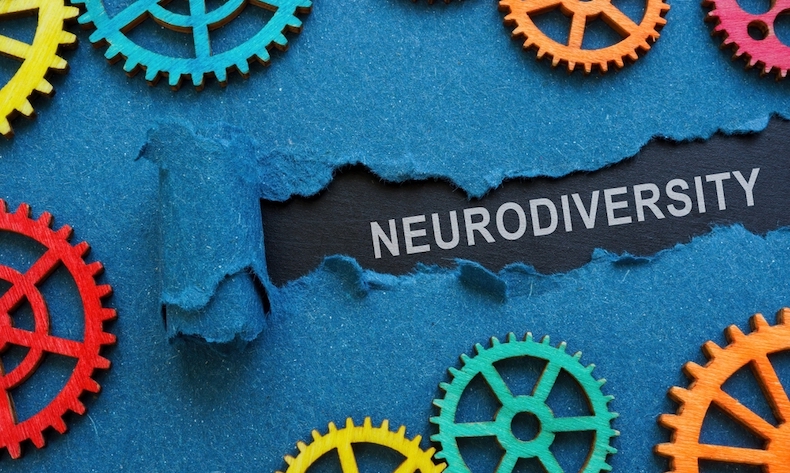How to recognise and support neurodiversity in the workplace
Corporate leaders are increasingly focusing on diversity, equity and inclusion (DE&I), recognising the positive impact this brings to the business.
For example, research suggests that embracing neurodiversity in the workplace can bring benefits such as increased productivity, as neurodiverse employees have unusual skills and cognitive abilities that allow them to approach tasks differently to neurotypical people.
With awareness about neurodiversity growing, many businesses are exploring ways to create an inclusive culture that harnesses the strengths of neurodivergent employees while providing the support they need to flourish in the workplace.
This is especially important when considering recruitment and retention strategies, as 75% of employees and job seekers agree that having a diverse workforce is important.
To ensure neurodiversity isn’t overlooked within a DE&I strategy, it’s crucial that employers are equipped to not only recognise the individual needs of neurodiverse workers, but also that these requirements are fully accommodated.
This is underpinned by offering them the right types of support including services that promote their mental health and wellbeing. By taking these steps, businesses can foster an inclusive environment which can help boost overall team performance.
Recognising unique challenges
The term ‘neurodiversity’ refers to how differences in the brain cause individuals to think, learn, process and behave differently, and encompasses those with ADHD (attention deficit hyperactivity disorder), autism, and dyslexia, among others.
While there are commonalities between the traits and behaviours that neurodiverse people often exhibit, they aren’t always explicitly obvious, making picking up on diversity of thought a complex issue.
Neurodivergent people can experience numerous challenges at work, feeling that they must ‘mask’ their natural behaviours, forcing them to behave ‘typically’, which can lead to feelings of low self-confidence, anxiety and burnout.
Neurodiverse individuals may also require additional mental health support because of the challenges they may face, which can ultimately take a toll on their overall wellbeing.
In fact, there are greater rates of mental health conditions in neurodiverse people. For example, seven out of 10 autistic people reportedly suffer depression or anxiety.
To address the unique challenges neurodiverse people often face in the workplace, organisations should consider ways to increase understanding across the team, as well as implement practical measures to ensure that neurodiverse people feel supported.
Providing the right support
Steps to supporting neurodiverse employees can be taken in many different areas of the business.
Recruitment strategies, for example, that accommodate neurodiverse people are becoming more commonplace, using simpler language and designs to ensure information is processed more accessibly.
The implementation of awareness training and education among the wider team is increasing, allowing neurodiverse employees to feel comfortable expressing themselves, empowering them to showcase their unique talents.
Minor modifications to the working environment, such as frequent prompts like checklists and calendars, the use of timers and alarms, and creating personal spaces for working to reduce distractions, can also drastically increase a neurodiverse person’s productivity and wellbeing.
However, with four-fifths of neurodiverse employees feeling they are misunderstood and around two-thirds suffering from low confidence, according to a 2022 study by The Brain Charity, businesses could be doing more to support their complex needs.
With neurodiversity often flying under the radar due to suppressing behaviours through ‘masking’ to fit into the work environment, it can be difficult for employers to pick up on where additional support may be needed.
Moreover, many neurodiverse people may not themselves be aware that they are neurodiverse. For example, it has been found that the number of autistic people in the UK may be twice as high as previously thought.
Despite increasing awareness of neurodiversity across businesses, many individuals may be suffering in silence, affecting their mental health.
Here, employers can look to external support to ensure that neurodiversity is recognised and that any challenges are fully addressed.
Implementing a bespoke employee assistance programme (EAP) that caters to an individual mental health requirement would allow neurodiverse employees, both diagnosed and undiagnosed, to highlight any issues they are experiencing to a medical professional .
Embracing potential
Neurodiverse individuals can bring an abundance of unique benefits to an organisation, often possessing higher-than-average abilities in areas such as pattern recognition, analytical thinking, photographic memory and technical focus.
Businesses can use these strengths to gain a competitive advantage, creating universal positives and driving business growth.
However, the needs of the neurodiverse employees themselves must take precedence above all else and organisations must ensure they are sufficiently supported before they can reap the wealth of benefits they bring to a business.
Supplied by REBA Associate Member, BHSF
BHSF is a market-leading health and wellbeing provider.








